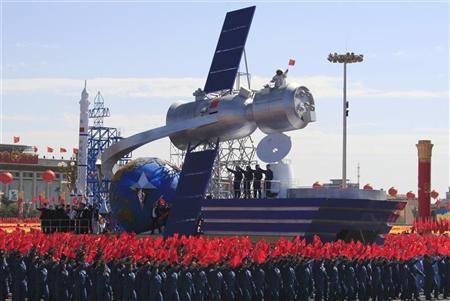With only six years up to completion of its BeiDou Satellite Navigation System (BDS), China has ramped up cooperation with some countries to improve the structure's geoinformation database.
BeiDou, also known as BeiDou-2 or COMPASS, is a constellation of 35 satellites with complete coverage of the globe. The system comprises five geostationary orbit satellites and 30 medium Earth orbit satellites. As of 2012, there are 10 operational satellites that cater to China and the Asia-Pacific region.
To furnish BeiDou with detailed information, the National Administration of Surveying, Mapping and Geoinformation said that China will work with Israel, Mexico and Sweden to complete the system's geographical information.
Li Pengde, the administration's assistant director, said that monitoring stations need to be set up in different countries to make the BDS efficient.
"The system now covers the Asia-Pacific region, but by 2020 it will cover the whole world," Li said at a geospatial information management forum attended by United Nations member countries.
Miao Qianjun, executive vice president of the Global Navigation Satellite System and Location-Based Service Association of China, said that China will cooperate with Singapore, Thailand, Malaysia, Pakistan, Laos and other Asian countries to promote the BDS.
To date, BeiDou system equipment have been sold to 30 countries, said an industry insider from the association.
In 2013, China's satellite navigation industry profited $17 billion. One-tenth of the 2013 profits came from BeiDou-1, a three-satellite system that is limited only to China.
According to the insider, the BDS still needs to be improved and promoted for commercial use.
China and Russia have signed an agreement in July that permits the establishment of monitoring stations in each country starting this year.
Along with GPS from the United States, European Union and Russia, the BDS has been approved by the United Nations. The system has been installed in over 200 car models in China and its chips have been embedded in over 40 million smartphones.



























